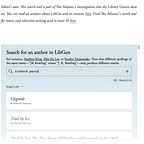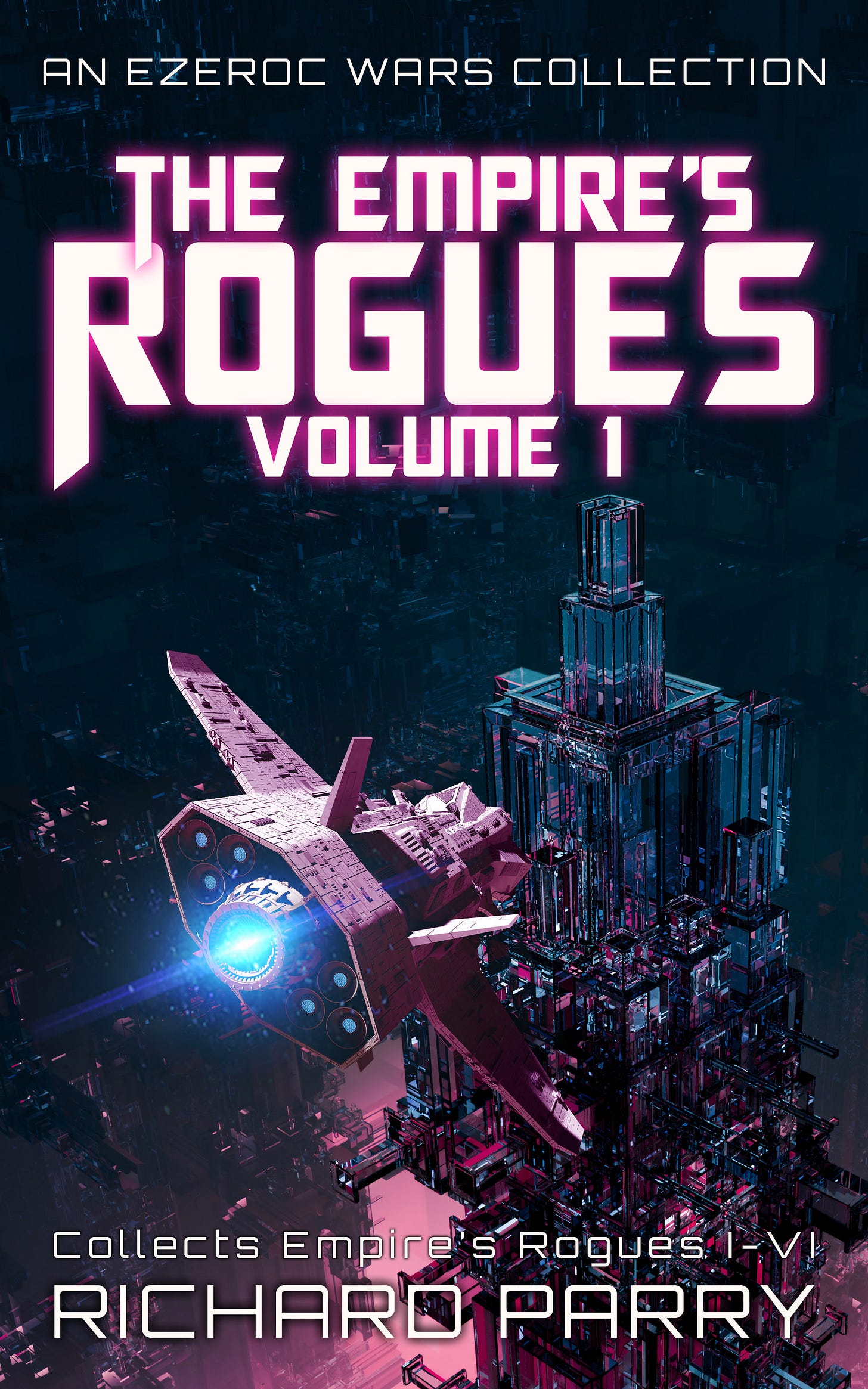I discovered (thanks, Atlantic) that my books are available on LibGen, and with it came the usual existential despair (“well, there goes everything”), along with anger (“you fucking fuckers”) and resignation (“wankers gonna wank”), and finally, a sort of feral pride ("at least someone cared enough to pirate me!").
Then reality checked in, carrying luggage: a hefty dose of financial truth. Last year, I earned exactly NZD$3,740.95 from my creative pursuits (about NZD$311.75/mo, about USD$180). For context, New Zealand's minimum wage is NZD$23.15/hour, meaning a minimum wage 40-hour-a-week earner grosses NZD$926 weekly. If you’re squinting at the screen wondering if there’s a mistake, don’t: an unskilled minimum wage worker earns triple my monthly writing income in just one week, despite me having a back catalogue of over 20 full-length novels all only about the price of a cup of coffee.
This isn’t a sob story, but it's a clear reality check: when you're an indie author, every sale counts. Piracy isn't just a yo-ho-ho hearty tale or a slightly whimsical nuisance; it's the difference between barely scraping by and, well, scraping slightly less. Being pirated doesn’t give me a great feeling (it’s exhausting), but it's oddly… validating? If you're being pirated, someone thinks you've created something worth stealing. Sidebar: I’m not sure if I should put that on my book covers.
However! Despite the knee-jerk reaction that piracy is the enemy, it's more complicated than it seems. I don’t think piracy is the disease—it’s a symptom. The real villain here isn't LibGen (I’ve been pirated for a long-ass time); it's the powerful marketplaces that claim to help authors but end up undermining reader trust. Looking at you, Amazon.
Let's unpack that.
Cory Doctorow Was Wrong (But He Meant Well)
Remember when Cory Doctorow loudly proclaimed piracy was good for authors because it boosted visibility? Sure, Cory: piracy is a wonderful promotional tool if you're already famous. Despite it working for this one guy, it literally does not work for thousands upon thousands of authors on LibGen, Facebook warez groups, and so on. When a reader has a spare five bucks, they're more likely to throw it at the guy they've already heard of (which is Cory’s point). Doctorow can afford the odd "stolen" read because people know and trust his name. He built his brand in the Before Times™ when LibGen didn’t exist and piracy was actually much, much harder (it doesn’t hurt that he’s also a brilliant writer - 0wnz0red on Salon will give you a taste).
Let’s take a side trip down memory lane.
In 2011, Valve’s Gabe Newell famously claimed piracy is an issue of service, not price. Valve is a tech darling, turning joy into cash without purchaser friction. It’s lower risk and far friendlier for gamers than current or prior alternatives (remember when you needed to buy physical media from that GameStop at the mall, risking influenza from the mob of children left there for free babysitting, only to get home and find the fucken thing didn’t work? And how some friend with eDonkey gave you a cracked and patched version that had no DRM?).
There’s a real delta, now. Piracy (courtesy of LibGen) is easier than the legitimate book retailer alternatives. With Amazon and other storefronts squeezing tighter, more people are seeking alternatives. Amazon’s strike against being able to get your bought and paid-for books out of your Kindle and into your home library—like, say, how physical books work—has driven some into piracy as a sort of antibody response. That is, LibGen provides a better experience than retailers now; it’s the Valve Software of the book industry, except no artists are getting compensated. It’s plain ol’ theft.
This means that when you're a struggling indie writer named Richard Parry, those five bucks Cory’s getting instead of me means the difference between continuing to write or crying into my coffee. Every “lost” sale isn’t a bastion of freedom; it’s another feeling of hopelessness in creative endeavours that makes me question the value of putting good things into the world. You can get my books “free” from real libraries where I still get paid, but LibGen hurts me. I don’t have the luxury of being Cory Doctorow.
This was brought home in 2019 when I released The Empire’s Rogues. This was a book in my long-running Tyche series, which by that time was heavily pirated. I even found a Facebook group sharing Google Drive links of my works; Google refused the DRM strike, and Facebook banned me from the pirate ring group rather than shut it down and risk those ad-revenue-generating eyeballs. An ARC reader released an early copy online. The result was this book sold a mere 18 copies at launch. It got 25-30 reviews, though (many of which Amazon have taken down), so at least the pirates did something for me! This about when I decided to officially stop writing full time and go back to my corporate job; piracy had destroyed my author career. I was a victim of Cory’s promised popularity, not a beneficiary.
To put this plainly: every pirated copy of my book isn’t just a theoretical lost sale. It’s one less reader who might leave a review, recommend it to friends, or simply become invested in my writing journey. When Cory gets pirated, he still has tens of thousands of loyal readers to cushion the blow. When I get pirated, the financial hit directly means fewer resources to write my next book, less motivation to keep creating, and fewer readers discovering my work organically. Since I’ve been widely pirated for over ten years but the money’s not flowing in, Doctorow’s thesis doesn’t hold the necessary water.
Not yet, anyway. Cory, if you’re reading this, call me.
HBO Got Game of Thrones Wrong, Too (But They’re Laughing Anyway)
Remember when HBO smugly stated that piracy was better than an Emmy? Well, that’s because it’s all corporate death stars all the way down; the executive robosuit theory there is that piracy was a singular, powerful intervention battling Netflix dominance. Success in streaming is often measured by eyeballs-per-hour, and when Game of Thrones is warezed, it stops those eyeballs hitting Netflix. In other words, HBO’s not winning, but Netflix is losing.
This is great news if you’re HBO, but for every HBO that’s winning, there’s a Peacock that’s struggling. Having the most pirated show in history is easy to brag about when you already command armies of paying subscribers and your opposition gets a nut-punch to the bargain. It's a lot harder to celebrate when your show (or book) isn't a household name yet.
Piracy rewards those already winning. It's like giving a complimentary dessert to the diner who’s got the cash to buy the lobster main. Meanwhile, indie creators like me are standing in the kitchen, hoping for crumbs. Remember my earlier financial snapshot? When a reader pirates HBO, HBO still pays their bills. When a reader pirates me, that’s money out of an already painfully slim wallet.
Why Amazon Secretly Loves Pirates
Amazon doesn't actually want you to "own" your books. They want to own your attention. They want you locked into your Kindle, and no other device (ref: HBO’s pyrrhic victory over Netflix). If you think it’s accidental that they don’t allow you to get books off your Kindle but it’s easy to copy them on, you haven’t been paying attention. Piracy serves their interests; the “rental” licensing model of book “purchases” on Amazon, where restrictive DRM stops you from taking your eyeballs elsewhere, but pirated books can still be sideloaded, is part of their escalating war on human attention.
Consider this: imagine buying a paperback and being told you can only read it in your living room. You can’t take it outside, lend it to a friend, or place it on a bookshelf. That’s the digital reality Amazon’s DRM walled garden creates. By making legitimate purchases inconvenient or even risky (say, books vanishing without warning), Amazon actively pushes readers toward piracy. LibGen offers permanence, portability, and simplicity (all the things Amazon refuses to provide).
The problem is, every time Amazon tightens its digital fist, readers who genuinely love books fear losing access to their beloved libraries. Enter piracy: suddenly, LibGen feels less like theft and more like digital preservation. And when readers jump ship to pirate sites, Amazon's market dominance tightens further. Piracy justifies their iron grip on ebooks, drives more people to piracy, but they still reap the rewards of your eyeballs locked into their ecosystem. Hands up those who bought a different ecosystem ereader when Amazon removed your ability to get books out. None? That’s about right; the cost of change is high and they’ve got you by the balls.
Amazon doesn't thrive despite piracy. It thrives because of it.
Valve Got It Right. So, Why Are Books Getting It Wrong?
Steam crushed piracy simply by making it easier, safer, and more enjoyable to buy games than steal them.
Meanwhile, ebooks have somehow gone backward. Instead of making books easier and safer to buy, big players like Amazon have made them harder and riskier. Geofencing content, region locks on accounts, disappearing books, removal of secondary markets, and forced DRM send readers straight into piracy's welcoming arms.
Piracy isn't a price problem. It’s a trust problem.

The Real Enemy (Hint: It's Not LibGen)
Bookstores should be the ally here. Indie bookstores and DRM-free platforms often are. But Amazon and their ilk are the General Tarkin of literature, squeezing their fist so tight that readers have started slipping through their fingers.
Pirates didn’t steal my readers. Amazon pushed them away.
Maybe LibGen isn't really my problem. Maybe it’s just another symptom of a marketplace that values control over customers. And while I don't want my books pirated, at least the pirates care enough to read me. That’s more than I can say for the system that's supposedly on my side but won’t recommend my books, while demanding advertising dollars to get a shred of visibility.
I’m not about to thank pirates, but at least they reminded me of something important: it’s not piracy stealing readers. It’s the platforms that forgot what readers want: simple, safe, and permanent access to the stories they love.
Maybe (just maybe) LibGen isn't the disease we need to cure. It's the symptom we need to finally take seriously.












